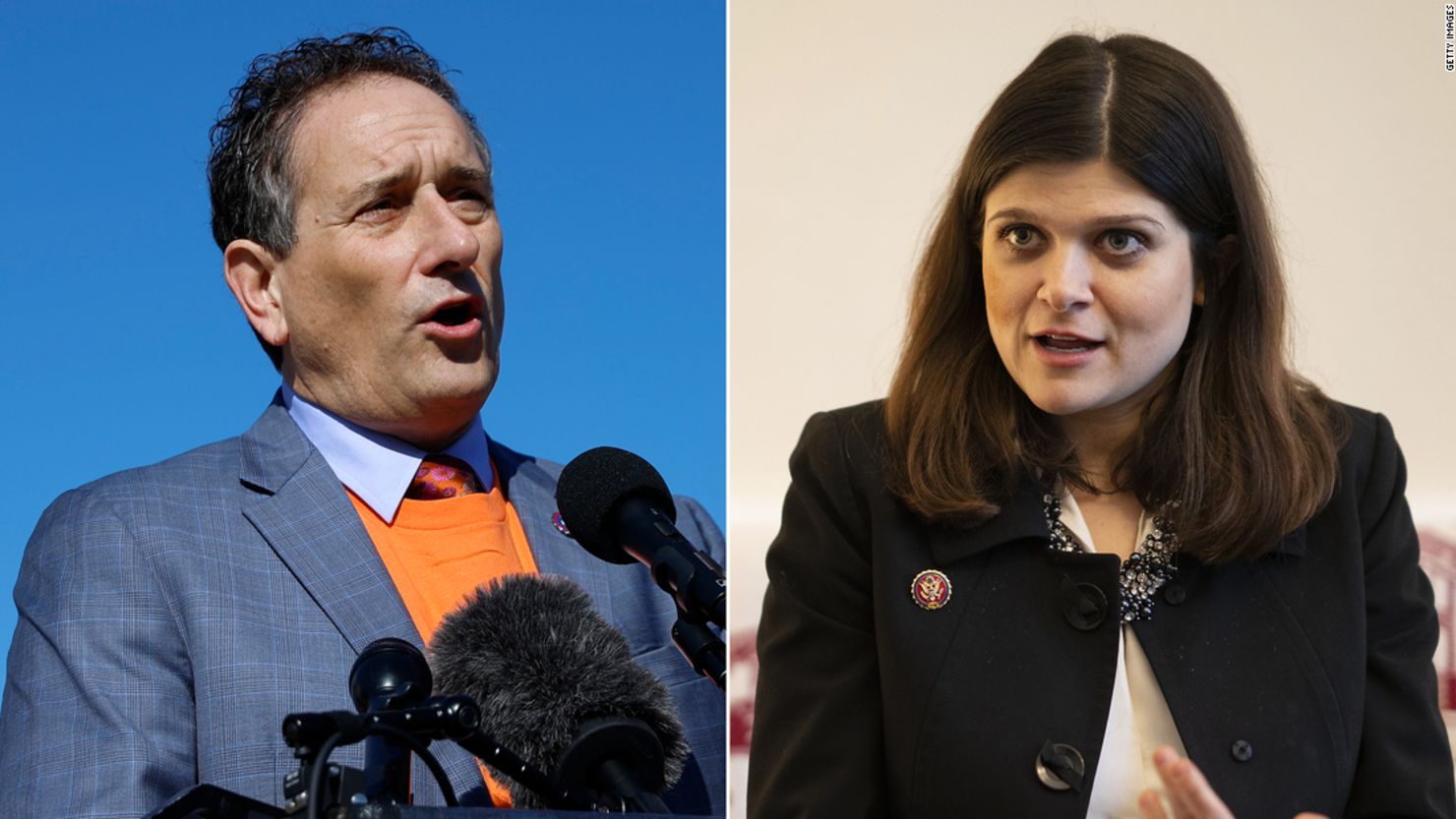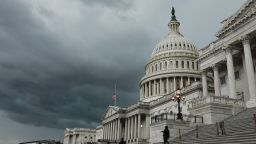The contentious Democratic House primary in Michigan’s 11th District, which pits two incumbents against each other after the state redrew its congressional map, has quietly become one of the key battlegrounds in the party’s evolving rift over Israel and overlapping debates about its broader ideological direction.
On Wednesday, the campaign arm of J Street, a moderate “pro-Israel, pro-peace” group that advocates for a two-state solution, will kick off a $700,000 television ad campaign to boost Rep. Andy Levin, who is running against Rep. Haley Stevens for the new seat.
J Street says its decision to jump into the August 2 primary was prompted by the massive outlay on Stevens’ behalf by a super PAC, United Democracy Project, affiliated with the American Israel Public Affairs Committee, or AIPAC. According to the most recent available disclosures, UDP has spent more than $910,000 backing Stevens. AIPAC, a hawkish pro-Israel group that supports both Democrats and Republicans, endorsed Stevens and has attacked Levin, who is Jewish and comes from one of Michigan’s most prominent Jewish political families, over his willingness to criticize some Israeli policy.
The escalating tension – and spending – in Michigan is the latest front in AIPAC’s efforts to influence Democratic House primaries this year. The group’s increased involvement has sharpened intraparty struggles over Israel policy, but, in backing moderate or centrist candidates, also resonated as a new front in the old proxy battle between the Democratic establishment and progressives. Notably, Israel is not the focus of television ads paid for by UDP.
This spring, the super PAC successfully backed a pair of candidates in open-seat primaries in North Carolina, while also helping boost Texas Rep. Henry Cuellar, who narrowly won nomination over progressive Jessica Cisneros in a runoff. But UDP suffered a high-profile defeat in Pennsylvania, where state Rep. Summer Lee overcame the more than $2 million it spent against her in a race with Steve Irwin in a new Pittsburgh-based district. The group has dramatically raised the stakes, too, in Maryland, ahead of its July 19 primary, already spending more than $4 million to defeat former Rep. Donna Edwards in the 4th Congressional District. J Street’s super PAC recently invested there to defend Edwards with a $500,000 television buy, complementing more than $150,000 in digital and direct mail advertising.
AIPAC’s stepped up involvement in these races has frustrated some Democrats, most prominently from the party’s progressive wing, who have criticized the group – and some of the candidates who have benefited from its spending – over its endorsement of Republicans who voted against certifying President Joe Biden’s election after the January 6, 2021, US Capitol riot. Biden, who has not endorsed in the Michigan primary, is traveling to Israel this week to begin a Middle East trip that will also take him to Saudi Arabia.
“Democratic voters in Michigan’s 11th district deserve to know that AIPAC, a group that endorses 109 insurrectionist-aligned Republican, is funneling millions of dollars from GOP megadonors into support for Haley Stevens – targeting Andy Levin simply because he fights for the principled views and values of mainstream Democrats,” J Street Vice President of Public Affairs Kevin Rachlin said in a statement. “We’re proud to do all we can to back the candidacy of Andy Levin, a fighter for democratic values and a true champion for the pro-Israel, pro-peace beliefs that most Jewish-Americans share.”
In their new 30-second ad, the J Street group hammers Stevens for accepting AIPAC support – in the form of bundled donations – in a video featuring images of violence at the US Capitol and from a recent hearing of the House select committee investigating it. The J Street spot, like those from UDP supporting Stevens, makes no mention of Israel.
Marshall Wittmann, a spokesperson for AIPAC, previously defended the group’s “broad support of both Republicans and Democrats,” telling CNN in May, “It requires bipartisan backing to enact legislation that can advance the relationship. Consequently, our PAC supports members from both parties in their election races.” He also noted that AIPAC had supported “over 120 House Democrats.”
Levin and Stevens, both elected to the House in 2018, do not dramatically differ in their views of the US’ role in the region supporting Israel – both reject the more pointed language used by left-wing critics of the state and previously voted for $1 billion in funding for Israel’s Iron Dome missile defense system.
Levin, though, is viewed as the more progressive candidate in the race and has been more vocal in his concerns over Israeli treatment of Palestinians. His willingness to publicly defend fellow Michigan Rep. Rashida Tlaib, an aggressive critic of Israel, against accusations of anti-Semitism, has also rankled AIPAC and similar harder line groups.
The tone of the primary was set earlier this year, when it became clear that Levin – the son of former Rep. Sander Levin and nephew of former Sen. Carl Levin – would be facing off in a competitive primary against Stevens in the new district. David Victor, the former AIPAC president, in a personal email to pro-Israel donors touted the race as “a rare opportunity” to oust a lawmaker he described as “arguably the most corrosive member of Congress to the U.S.-Israel relationship.”
That email language prompted a backlash among some high-profile Democrats, who signed onto a letter this March defending Levin.
“It is fair to disagree on and debate policy approaches,” they wrote. “But it is out of bounds to malign the only Jewish candidate in this race by impugning Andy’s love for the State of Israel or his community bona fides, which run strong and run deep.”
Democratic Reps. Jerry Nadler of New York, Jamie Raskin of Maryland, Steve Cohen of Tennessee, John Yarmuth of Kentucky, and Sara Jacobs and Alan Lowenthal of California were among the signatories who are currently in office. The letter was published in The Forward, a not-for-profit publication focused on American Jewish issues.
CLARIFICATION: This story has been updated to clarify that Stevens and Levin are running in a new district.


